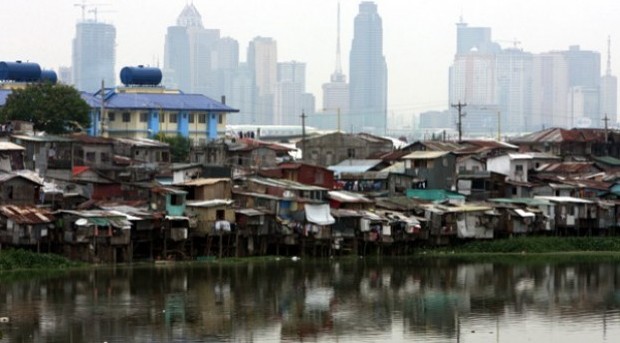Rody assures squatters of relocation
RELOCATION before demolition.
This will be the mantra of the Duterte administration in dealing with informal settlers, or squatters, who often figure in violent clashes with police over their eviction.
Speaking before fellow alumni of the San Beda College of Law in Malacañang on Sunday night, the President assured informal settler families they would not be displaced “like dogs” during his six-year term.
Mr. Duterte, long-time mayor of Davao City before he won the presidency, vowed to be “very generous” to impoverished residents of squatter colonies.
“During my time, there will be no demolition if there’s no relocation. I will not allow it,” the President said during the fellowship dinner he hosted for his former classmates.
Article continues after this advertisement“They have nowhere to go if you destroy their houses. Where will the people go? Where will they find another shelter?” he said.
Article continues after this advertisementSection 26 of Republic Act No. 7279, also known as the Urban Development and Housing Act of 1992, prioritizes the rehabilitation and development of blighted and slum areas over resettlement.
Onsite development shall be implemented whenever possible in order to ensure minimum resettlement.
Moreover, Section 28 discourages eviction and demolition in slum areas. Eviction or demolition, however, may be allowed under three conditions: When the areas occupied are dangerous such as “esteros,” railroad tracks, garbage dumps, riverbanks, shorelines, waterways and other public places such as sidewalks, roads, parks and playgrounds; when government infrastructure projects are about to be implemented; and when there is a court order for eviction and demolition.
Requirements
The law’s mandatory requirements for eviction or demolition orders involving underprivileged and homeless citizens include adequate temporary or permanent relocation, and at least 30-day notice prior to the date of eviction or demolition.
There should also be consultations with the duly designated representatives of the families to be resettled and the affected communities in the areas where they are to be relocated.
Most slums are located on public lands and abandoned private properties that are close to the poor’s sources of livelihood, such as dumps for scavenging, roadsides for itinerant vending and residential areas for domestic services.
Based on the 2010 Census of Population and Housing, and the Annual Poverty Indicator Surveys, 3.563 million or 19.1 percent of families lived in makeshift shanties of less than 10 square meters and 3.757 million lived in small shelters of 10 to 19 square meters.
Mr. Duterte said he would make available public funds to ensure “suitable relocation” for informal settlers and provide livelihood for them.
Mr. Duterte said he had directed the Bureau of Internal Revenue to raise the funds “because I have so many problems.”
“That’s my priority. And I need a lot of money,” he said. “I have to address the economic conditions of everybody, including and perhaps first, those who have less in life.”
